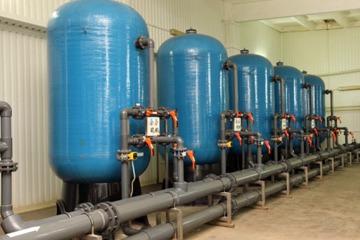ISLAMABAD: Atmospheric water generator (AWG) comes as an alternative system for Pakistan that direly needs alternative sources of water to meet the daily needs of its over 200 million people, reports WealthPK.
An AWG is a device that converts moisture into water. It can work independently without water reserves and adapt to harsh climate conditions in any location. The system’s daily output is anticipated to be 15 litres.
Rabia Liaquat, Head of Department of Energy Systems Engineering, National University of Science and Technology (NUST), told WealthPK that the product can even extract water in harsh environmental conditions with humidity level as low as 30% and temperatures lower than 35°C.
She said water extraction was made possible by the recently developed idea of liquid desiccants in which the desiccant itself is a hygroscopic (water-absorbing) component. It is more efficient than other methods of drawing moisture from the surroundings.
The extraction process involves releasing all of the water absorbed by the desiccant from the surrounding atmosphere and then reabsorbing it so the cycle can proceed, she added.
Rabia said water is necessary for continuation of human life. To meet the needs of more than 200 million people and the growing demand for all sectors of economy, Pakistan needs alternative sources of water production for water-scarce rural regions. Many of these regions are located along Pakistan’s southern coastline.
‘’Although the Arabian Sea is around the southern coastlines, this region also has high humidity in the wind. Owing to a lack of knowledge about using the humid air to extract water, the country’s southern parts face drinking water difficulties, particularly those located around the Makran coastline. These coastal regions have a high humidity level (about 70–80%) and the government can use AWG to absorb water from the air suitable for drinking,’’ said Rabia.
Temperature and humidity are the two main components needed to create water. Temperatures between 21°C and 35°C and relative humidity levels between 35% and 100% are the ideal operating ranges, she added.
According to a representative of Industrad Group, with some design improvements, large-scale industrial water extraction using AWG is also achievable. It pulls water from the air using a series of chemical salts. Salt attracts and retains moisture naturally. Humid air travels across salt in desiccant-based water producers. Wet salt is boiled. The condensed steam is filtered to produce water. Moreover, a vacuum is also used to lower water’s boiling point to conserve energy. Desiccant-based atmospheric water generation uses less energy than other techniques.
He explained that AWG is a sustainable way to produce water since the atmosphere contains 3100 cubic miles (12,900 square kilometres) of water. That’s nearly enough water to fill the Great Lakes. The hydrologic cycle constantly replenishes water vapour; therefore, collecting water from the air may continue endlessly without harming the planet.
Rabia said AWGs are also equipped with an antimicrobial air filter to remove impurities from the air. The water is further purified in later stages of the process with Ozone.
Explaining the system limitations, the expert said with low humidity, all air-to-water machines were challenged. AWG machines are not designed for very dry or cold climates.





